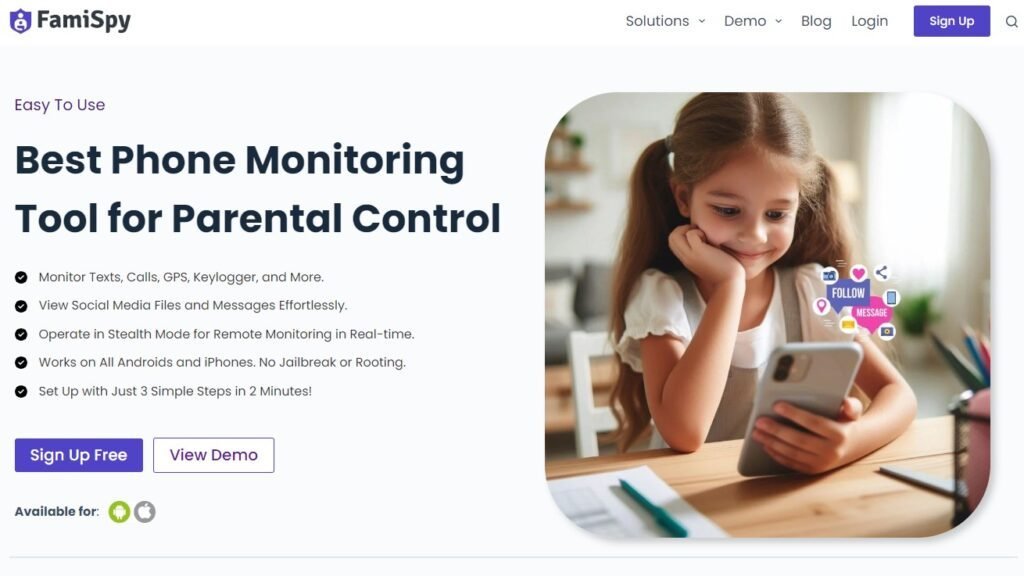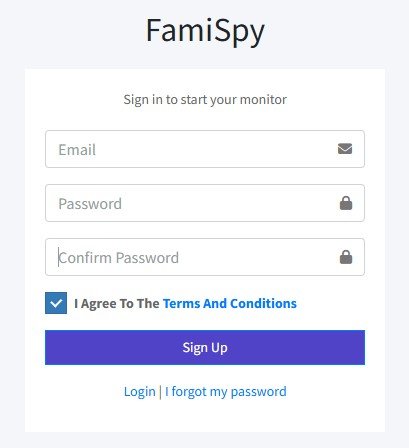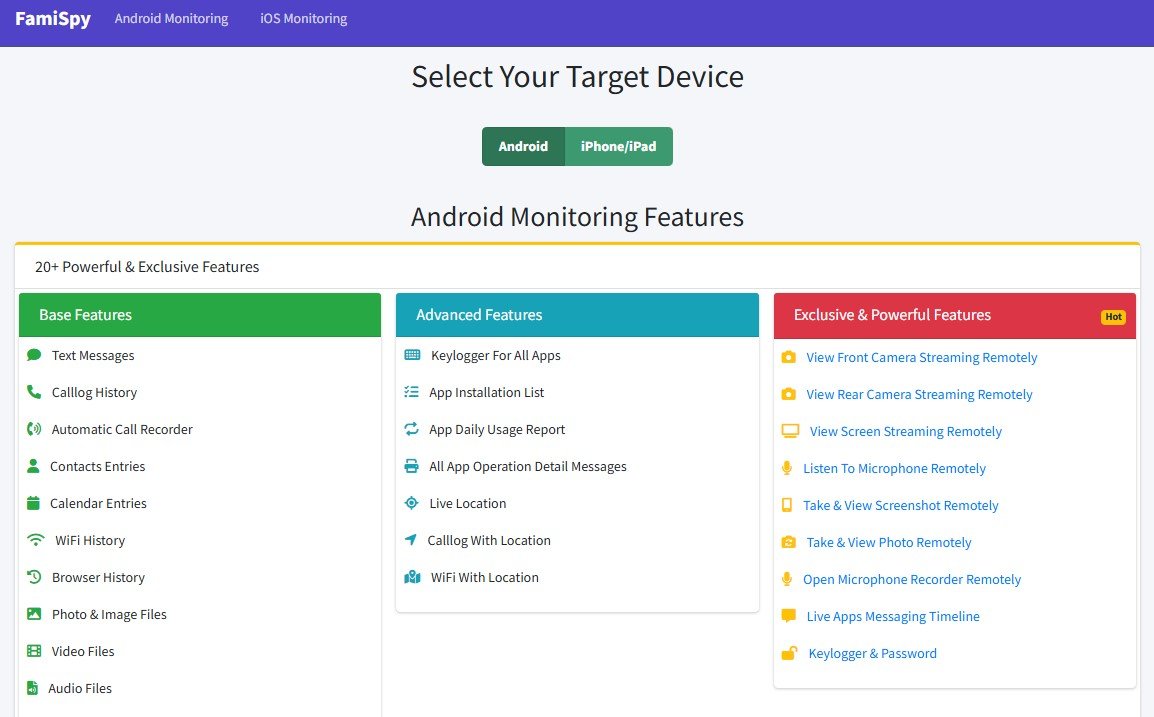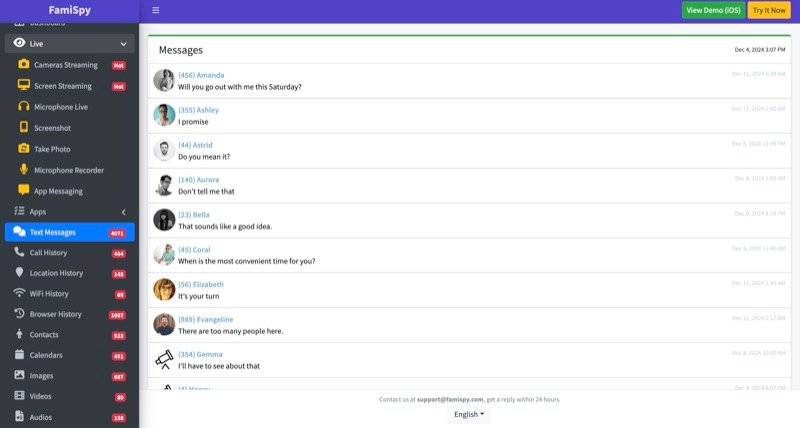Teen slang is dynamic, with new phrases emerging all the time from social media, online communities, and youth culture. One of the newest slang words to catch on is ONG, which is “On God.” If you’re a parent who’s trying to stay in control of your teenager’s digital interactions, then you need to know what slang like ONG means. In this full guide, we’ll take a deeper dive into what the ONG means, its cultural significance, and how you can leverage services such as FamiSpy to know your teen’s online activities.
Understanding the Meaning of ONG
So, what does ONG mean? ONG is for “On God” – the term teens use to indicate that something is true or sincere. If a teenager utters “ONG,” they mean that it is absolutely true, genuine, or legit. The word is also used as a type of affirmation, much like “I swear” or “I promise” in ordinary speech.
For example:
- “That movie was fire, ONG!” (Meaning: “That movie was amazing, I swear!”)
- “ONG, I’m not even lying.” (Meaning: “I’m telling the truth, seriously.”)
As you can see, the ONG meaning helps to reinforce the authenticity of what is being said, often making the statement feel more serious or genuine.

The Origins of ONG: Define ONG and Its Cultural Significance
But to learn more about the slang ONG, we have to know how it began. Like most slang, ONG originated as AAVE or African American Vernacular English and spread via social media, especially TikTok, Twitter, and Instagram. Originally, the phrase “On God” was created by hip-hop to be sincere or show a strong belief in something. It even has religious meaning, since it implies that something is being asserted as God-truthful – although today, we usually employ it to mean nothing at all. If parents can figure out the cultural origins of ONG, it will also give them an understanding of why teens employ these phrases to signal both belonging and status in peer groups.
How Teens Use ONG and Other Slang in Their Digital Conversations
Internet culture influences teen slang, such as ONG. Teens use it on social media, in text messages, and in group discussions. If you are a parent, then you would probably find your child or teen using ONG with friends often. Even if it seems like a harmless exercise, getting to grips with how and why teenagers deploy these words can reveal so much about their communication style, mood, and even their relationships.
Teens may use ONG in a variety of ways:
- Casual Conversations: To emphasize a point, e.g., “ONG, that was the funniest thing ever!”
- Peer Pressure: To affirm social behavior or group activities, e.g., “Everyone’s going to the party, ONG!”
- Expressing Seriousness: To stress that something is absolutely true, e.g., “ONG, I’m not joking.”
These expressions serve multiple functions, from gaining peer validation to emphasizing the significance of their emotions. It’s a way for teens to bond with their friends and show that they are “in the know” about current trends.

Why Teen Slang Like ONG Matters for Parents
Understanding slang such as ONG isn’t just about staying up to speed with trends. Language often serves as a veil for deeper, sometimes concealed conversations. Teens’ vocabulary can express emotions, wishes, or even dangerous acts that adults wouldn’t see as being obvious.
Here’s why you should care about what ONG and other slang terms mean:
- Communication Barrier: Slang can get in the way of you and your teen. The more words you don’t know, the less you’re able to engage with them or guide them when they’re trying to tell you something important.
- Hidden Meanings: People might apply some slang to situations that hint at risky habits, peer pressure, or negative friendships.
- Social Dynamics: Slang is a form of social bonding for teens. With ONG, teenagers form communities with friends, leaving parents out of it.
- Digital Safety: Teens use many slang terms to discuss activities that might not be appropriate for their age, such as partying, drug use, or risky behaviors.
Understanding slang helps parents take the extra step to get on top of what their child is doing socially.
Is Teen Slang Dangerous?
While teen slang is usually fun, it can also signal trouble or dangers that adults might not be able to spot. Here’s why it can be more dangerous than it seems:
- Hidden Meaning: Slang such as ONG or “lit” could apply to unsafe activities, such as partying or sneaking out, that are not always apparent.
- Peer Pressure: Teens often use slang to fit in, and the pressure to conform can lead them to adopt harmful behaviors, like skipping school or experimenting with drugs, while hiding the true meaning.
- Inappropriate Content Online: Some slang terms are used in online communities to hide inappropriate or explicit content. Without understanding the slang, parents may miss signs of cyberbullying or exposure to harmful material.
- Romantic and Sexual Contexts: Sayings such as “hooking up” or “Netflix and chill” might also have implied sexuality that parents don’t realize is there.
- Emotional Struggles: Slang can also obscure mental health problems such as stress or depression. Teens might use things such as “I’m fine, no cap” to obscure their true emotions, so parents can miss the mark.
How FamiSpy Can Help Parents Monitor Teen Slang and Online Activity
Being a good digital parent is not just about knowing ONG or other slang terms. The other crucial thing is a vigilant observation of your teen online. FamiSpy is a great app for parents who need to monitor their teens’ online presence without invading their privacy.

FamiSpy allows parents to:
- Monitor Text Messages: Check text messages sent and received by your teen to get a clearer look at their usage of slang like ONG and others. Monitor their messages to see when they use slang and if it’s something to be worried about.
- Track Social Media Activity: Check your teenager’s use of social media sites such as Instagram, Snapchat, and TikTok, where they use slang frequently. That lets you see how they use acronyms such as ONG in posts and interactions.
- Location Tracking: FamiSpy offers real-time location tracking, allowing you to keep tabs on where your teen is when they mention places using slang like “lit” or “fam.” This feature can help you ensure they’re safe, even when they’re using slang terms that might hint at parties or potentially dangerous locations.
- Monitor Calls: You can also track the calls coming and going with FamiSpy. There is a lot of slang in teen talk, and if you can understand what they are saying when they are social, then you get a clearer picture of what their lives are like.
By using FamiSpy, parents can stay ahead of any concerning behavior or interactions and maintain open communication with their teens about the language they’re using.
How to Use FamiSpy to Monitor Your Kid’s Online Activity
FamiSpy is a powerful tool that helps parents easily monitor their kids’ online activity to ensure their safety.
Step 1: Sign Up for an Account
The first step is to create an account on FamiSpy. Visit the official FamiSpy website and click on the “Sign Up” button. Pick the monitoring package that works for you and give your email address and password to sign up. After registering, you’ll get all the benefits of FamiSpy and can start configuring for monitoring.

Step 2: Install FamiSpy on the Target Device
Now you have to install FamiSpy on your child’s device. Sign in to your FamiSpy account and install the Android app. Follow the installation guide and grant all the permissions, like messages, social media, and location. Then FamiSpy will operate in the background, without interfering with the device’s performance. If your teen uses an iPhone, you need to use the iCloud ID and password to access the backup data.

Step 3: Start Monitoring
You can start to keep track of your child’s internet use now. You’ll be able to see their text messages, calls, social media, browsing history, and location in real time. These are all features that help you stay on top of things and keep your child safe online.

Popular Teen Slang Terms to Watch Out For
While ONG is a popular term, there are countless other slang words that teens use to express themselves. Here are some other common phrases to be aware of:
- Cap / No Cap: “Cap” means a lie, and “No Cap” means to be truthful or honest. Example: “No cap, that was the best concert I’ve ever been to.”
- Flex: To show off or boast, often about material possessions or achievements. Example: “She’s always flexing her new phone.”
- Bet: Used to agree with something or confirm plans. Example: “You want to go to the mall? Bet.”
- Slay: To excel or perform exceptionally well, often used to compliment someone. Example: “She’s slaying her outfit today.”
- Lit: Refers to something exciting, fun, or enjoyable. Example: “The party last night was lit!”
- Fam: Short for family, but can also refer to close friends. Example: “I’m hanging out with the fam later.”
Although most of these words might seem harmless, understanding the context in which they’re used is important, especially if they signal unhealthy peer influences or unsafe behavior.
FAQs About ONG Teen Slang
Conclusion
To communicate openly with your child these days, ONG and other teen slang words are essential. But teen slang is more than just words: it speaks to your teenager’s interactions, attitudes, and mental health. Staying informed about slang terms like ONG helps parents ensure their children use language responsibly and avoid harmful social circles.
By using tools like FamiSpy, you can track your teen’s phone usage, know when slang is being used, and step in to keep them safe. Don’t be a skeptic about slang like ONG read up, stay in the know, and keep your teen’s online experience safe.
Don’t Miss:








